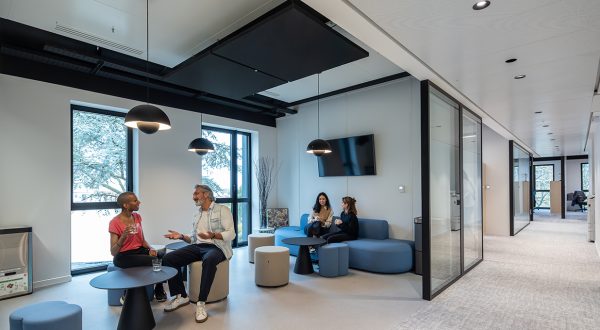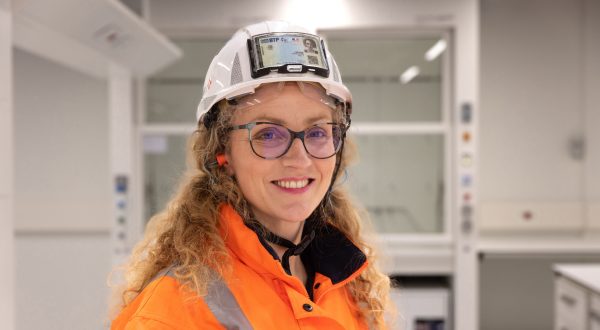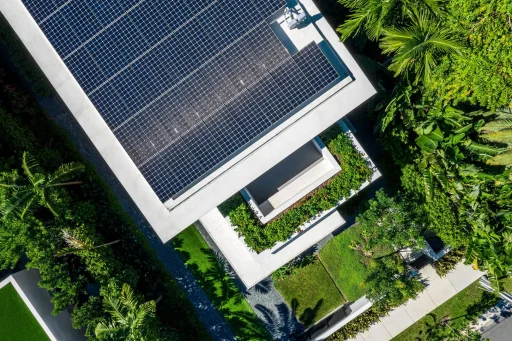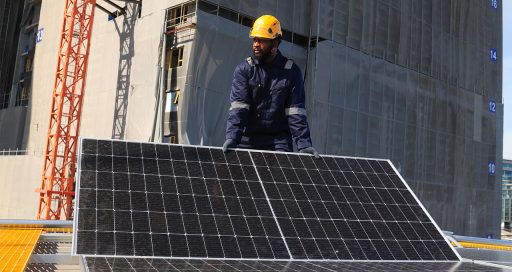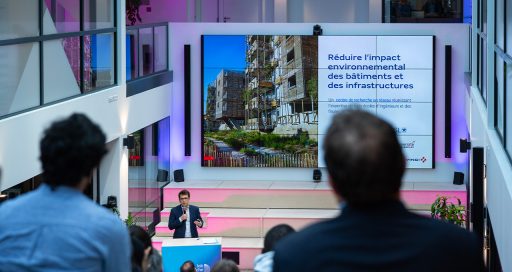Of all commercial buildings, spaces used for sport perhaps require the most sophisticated HVAC (heating, ventilation and air conditioning) expertise.
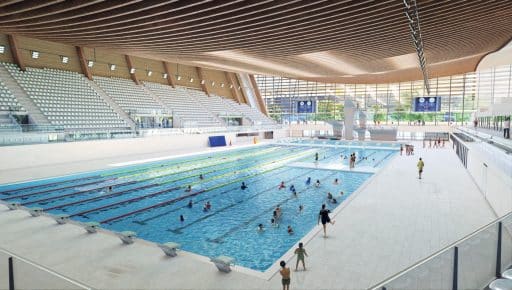
© Proloog
With electricity prices rising, many town and village councils are no longer able to heat some buildings. Because sports facilities consume on average 50% more energy than other commercial-sector buildings, they are often among the first to suffer from budget cuts.
But as France prepares to host the Olympic Games in 2024, sports infrastructure is more than ever a powerful tool for making its regions more attractive. And HVAC is emerging as a solution.
“HVAC (heating, ventilation and air conditioning) expertise enables local officials and sports facility operators to save energy and reduce their environmental impact”, says Patrice Franssens, HVAC Development Manager at VINCI Energies Building Solutions.
Amid the ongoing evolution in smart buildings, HVAC has developed service offers increasingly finely tuned to the specific needs of individual buildings, especially in sports facilities, which vary widely in their needs and constraints.
Ranging from swimming pools, velodromes, stadiums and massive multi-use buildings to small local gyms, structures with or without stands, open or enclosed, few buildings have less in common with a sports facility than another sports facility. “The type and size of an HVAC system depend on various criteria, including the size of the building, what it is used for, and its usage and occupancy rates”, continues Patrice Franssens. “You therefore need to run precise diagnostics to build scenarios relating to the building’s type and function”.
Energy recovery
The levels of expertise required will be very different for a small suburban community centre, for example, and a large, scalable, multipurpose space like the Paris La Défense Arena, where VINCI Energies designed and commissioned a comprehensive, flexible heating, ventilation and air conditioning system.
“HVAC expertise enables local officials and sports facility operators to save energy and reduce their environmental impact.”
As Patrice Franssens explains: “In large-scale, multifunctional environments where the occupancy rates and rhythms can vary widely, the HVAC system configuration must consider the maintenance aspect from the outset. It is important to work closely with the teams who will be keeping a necessarily complex mechanism in good working order”.
The group’s expertise was selected for the future Saint Denis Olympic aquatic center (designed by Ateliers 2/3/4 and VenhoevenCS), due to open for the Olympic Games in 2024. This modular site can accommodate up to 5,000 people and has strong environmental ambitions, with 90% of its waste due to be recycled.
“Aquatic venues require specific solutions”, says Patrice Franssens. “In every building, heat builds up. The higher the ceilings, the more important it is to implement heat recovery systems. In a swimming pool, you are already dealing with large volumes of air, but then you also have to consider evaporation. Intelligent HVAC makes it possible to recover this energy to heat associated facilities such as changing areas, shower rooms, toilets, and the water in the pool”.
Each facility has its own solution. But across the board, HVAC expertise plays an increasingly crucial role in meeting the challenges of reversibility, digital innovation, the environment and air quality in sports venues.
13/10/2022
